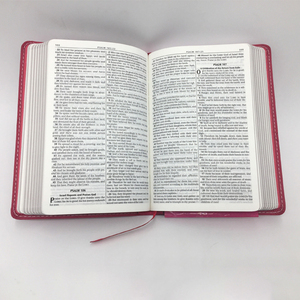Introduction to Reading Spiritual Books
Reading spiritual books is a profound way to delve into the depths of human consciousness, explore various belief systems, and gain insights that can transform one’s life. These texts serve as guides to understanding oneself and one's place in the universe, offering wisdom from ancient philosophers, spiritual leaders, and modern thinkers alike. The quest for spiritual knowledge can lead to personal growth, inner peace, and a more meaningful existence.
Types of Reading Spiritual Books
Spiritual books come in various forms, each catering to different paths and philosophies:
- Religious Texts: These include foundational texts such as the Bible, Quran, Bhagavad Gita, and Torah, offering insights into specific faiths.
- Self-help Books: These books focus on personal development through spiritual practices and often blend psychology with spirituality.
- Philosophical Works: Authors like Alan Watts or A Course in Miracles offer philosophical perspectives that challenge traditional views and encourage deeper thinking.
- Meditation Guides: Books that provide techniques and practices for meditation, mindfulness, and contemplation.
- Biographies: These texts detail the lives of spiritual leaders and visionaries, showcasing their journeys and teachings.
Function, Features, and Benefits of Reading Spiritual Books
The primary function of reading spiritual books is to enhance personal growth and spiritual awareness. Here are some salient features and benefits:
- Guidance and Clarity: Spiritual books often provide frameworks for understanding life's complexities, helping readers find clarity and direction.
- Inner Peace: Engaging with spiritually enriching content encourages mindfulness, leading to a calmer state of mind.
- Healing and Transformation: Many spiritual texts focus on healing emotional wounds and transforming negative patterns into positive ones.
- Connection to a Greater Purpose: These readings foster a sense of connection to something larger than oneself, promoting a feeling of belonging and purpose.
- Enhancement of Intuition: By exploring spirituality, readers often develop a stronger connection with their inner voice and intuition, guiding their life choices.
How to Choose the Right Spiritual Book for You
Given the vast selection of spiritual literature available, choosing the right book can feel overwhelming. Here are some tips to help you select the best spiritual book:
- Define Your Intent: Are you seeking inspiration, guidance, or answers to specific questions? Defining your purpose will narrow down your options.
- Explore Different Authors: Each author brings a unique perspective. Read reviews or excerpts to find a voice that resonates with you.
- Consider Your Background: If you have a particular religious or philosophical background, books aligned with those principles might be more meaningful.
- Check Recommendations: Look for curated lists, online forums, or ask friends for their suggestions; often, recommendations lead to hidden gems.
- Attend Book Clubs: Engaging with others who are also on a spiritual journey can provide recommendations and enrich your reading experience.
Conclusion
Reading spiritual books is not merely about accumulating knowledge; it’s about experiencing a transformation that resonates through every aspect of life. Whether you’re drawn to poetic prose, practical guides, or philosophical inquiries, these books have the power to inspire, heal, and elevate the human spirit. Embrace this journey and let the wisdom of spiritual literature illuminate your path.
















































